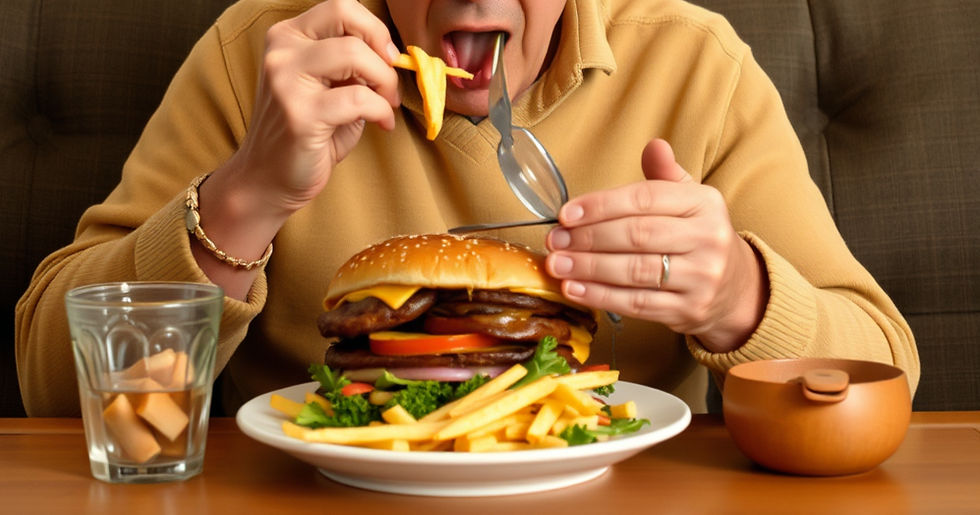Eating disorders, psycho social influences and depression
- Randa Foda MD
- Nov 6, 2025
- 2 min read
Eating disorders, psycho social influences and depression
Eating disorders, psychosocial influences, and depression are closely intertwined and can often influence each other in complex ways.
Eating Disorders: These involve abnormal or disturbed eating habits, which may include behaviors like restricting food intake, binge eating, or purging. Common eating disorders include anorexia nervosa, bulimia nervosa, and binge eating disorder. Eating disorders are often linked to negative body image, low self-esteem, and a need to control one’s environment, which can be exacerbated by other psychological issues, such as depression.
Psychosocial Influences: These refer to the social, cultural, and environmental factors that influence an individual's mental health and behavior. These factors include:
○ Cultural ideals and societal pressures: Societal standards of beauty, media portrayal of ideal body types, and pressures from family and peers can create a significant amount of stress, contributing to the development of eating disorders. People may feel compelled to meet these standards and may develop unhealthy eating behaviors as a result.
○ Trauma or abuse: A history of trauma, whether physical, emotional, or sexual, can also play a significant role in both the onset of eating disorders and depression. People may use disordered eating as a way of coping with or masking painful emotions.
○ Family dynamics: Family relationships, including dysfunctional patterns of communication, neglect, or overprotection, can influence the development of eating disorders and depression. In some cases, family members may contribute to unrealistic body expectations or unhealthy relationships with food.
Depression: Depression is a mood disorder characterized by persistent feelings of sadness, hopelessness, and a lack of interest in activities that were once enjoyable. There is a significant overlap between depression and eating disorders. For example:

○ Low self-esteem: People with depression often have a negative self-image, which can lead to harmful behaviors like restricting food intake or overeating in an attempt to gain control or cope with their emotions.
○ Emotional eating: Some individuals turn to food as a way to numb or manage difficult emotions. Binge eating or restrictive eating can be forms of emotional regulation, even though they may only offer short-term relief and can contribute to deeper mental health issues over time.
○ Cycle of reinforcement: Eating disorders and depression can create a vicious cycle. For example, someone may develop an eating disorder as a result of low mood or self-esteem, and the disorder itself may contribute to feelings of shame, guilt, or isolation, which worsen depression.
Treating these interconnected issues typically involves a multi-faceted approach.



Comments